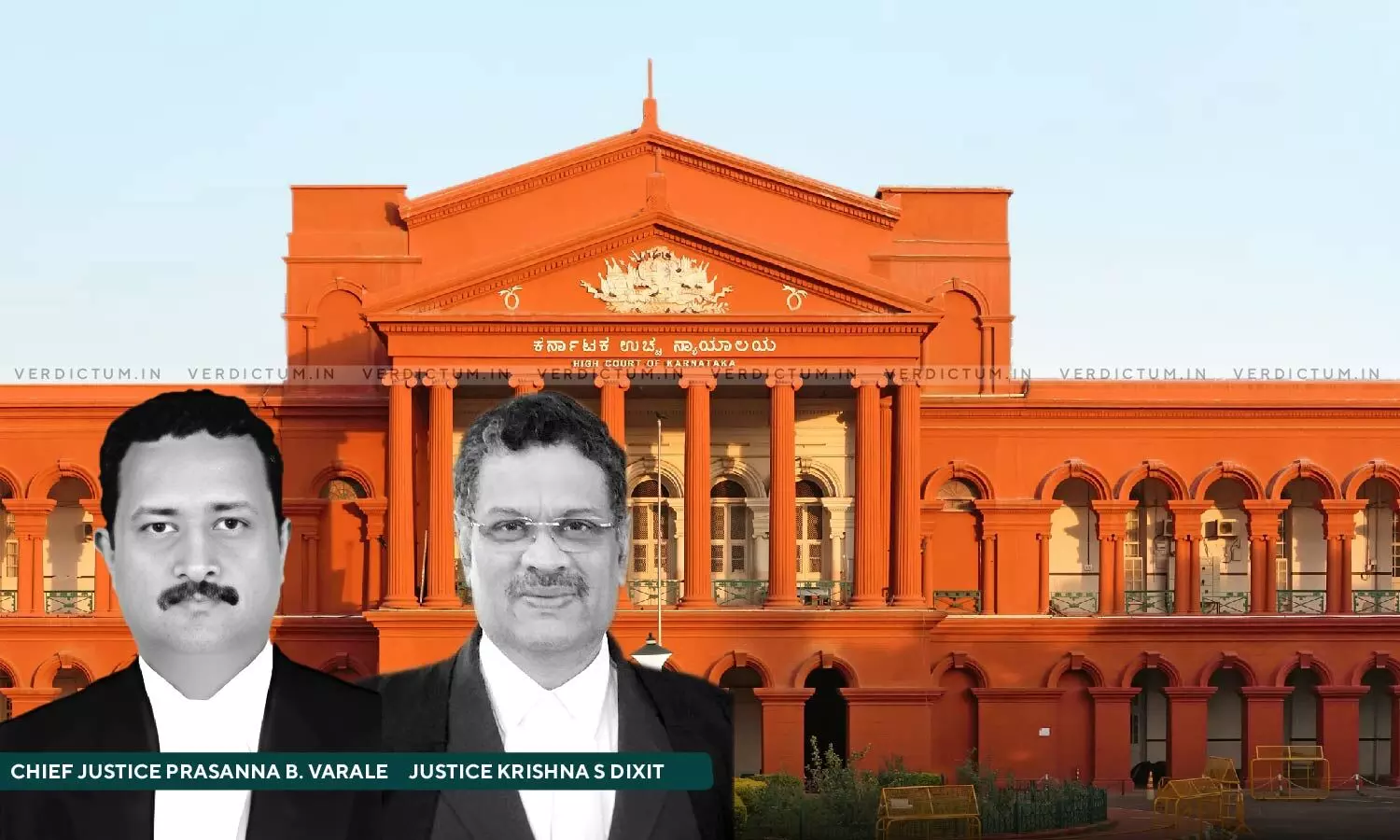
Retention Of Allotment Of Public Property Without Accomplishing Purpose For Which It Was Alloted Is Against Public Interest : Karnataka HC
 |
|The Karnataka High Court observed the retention of the public property is against public interest if the specified purpose for which it was alloted remains \ unaccomplished
The Karnataka High Court observed that retention of allotment of public property without accomplishing specific purpose for which it is alloted is against public interest.
Permitting such entities to retain allotment of the site despite breach of the statutory conditions, would lay a bad precedent which has abundant abuse potential, the court said.
The Court dismissed a Writ Appeal filed by Divyajyothi Vidya Kendra challenging the order of the Trial Court. The Trial Court had affirmed the Order of the Karnataka Housing Board (KHB), canceling of allotment of the disputed property.
“There is one other important factor which we cannot leave unsaid: where the public property is allotted for a specified purpose and that purpose remains unaccomplished, the retention of such allotment militates against the public interest. Where such a purpose has constitutional flavour like the one catering to the educational needs of the society, this proposition assumes imperative character. If leniency is shown in matters of breach, that would be tantamount to placing premium on illegality”, the Bench headed by Chief Justice Prasanna B. Varale and comprising Justice Krishna S Dixit held.
Senior Advocate K Diwakar appeared for M/S Divyajyothi Vidya Kendra (Kendra/Appellant).
A Writ Petition was filed challenging the order of the Trial Court whereby, Kendra’s petition challenging the cancellation of allotment of the subject land was dismissed. The Court had also directed the Karnataka Housing Board (KHB) to pass orders determining the quantum of forfeiture and refund of the remaining amount to Kendra.
The Court asserted that the disputed property was earmarked as a civil amenity including the establishment of a school. The Court asserted that providing education to the public falls under constitutional imperative under Articles 21 and 21A of the Constitution. State mediate with private agencies when the State is not in a position to fulfill the educational needs, the Court reiterated.
Furthermore, the Court noted that the disputed property had remained unutilized for more than two decades after the allotment. The Court further remarked that if the disputed property was allotted to some worthy person, the purpose for which the property was earmarked would have been fulfilled.
The Court noted, “As a consequence, the right to education of those who would have studied, should the school or educational institution was established in this site in terms of stipulation of allotment, has been brutalized, to say the least. All such persons are the inarticulate stakeholders in the allotment and the execution of the purpose for which such allotment was made. Had the site in question been allotted to some worthy person, that would have served the public purpose for which it was earmarked”.
The Court observed that the allotment of the disputed property is liable to be dismissed as it was a public property, subject to a condition that construction should come up within five years. The allotment and execution of sale deeds were fulfilled per the terms of the Karnataka Housing Board Act, 1962 (Act) and not as a private arrangement, the Court added.
“What the court has to see is whether the structure is built within two years as stipulated in the so-called conditional sale deed and nothing beyond that. No rule of binding conduct or ruling is brought to our notice which authorizes the extension of stipulated period or for the condonation of enormous delay in endeavouring the compliance of condition. One has to keep in mind that the allotment of the civic amenity sites, although creates interest to an extent, is onerous and the allottee holds the property in a kind of public trust so that the property is put to specified use”, the Bench noted.
Accordingly, the Court dismissed the Appeal and affirmed the impugned order.
Cause Title: M/S Divyajyothi Vidya Kendra v Karnataka Housing Board (2023:KHC:36781-DB)